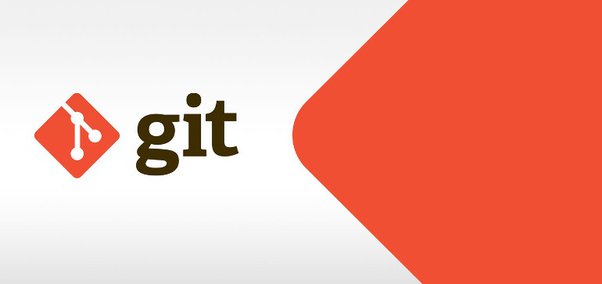In the world of software development, efficient management of your codebase is crucial for success. This is where source code repositories come into play. These platforms not only store and manage your code but also offer powerful tools for collaboration, version control, and security. With numerous options available, choosing the right source code repository for your needs can be daunting. In this guide, we’ll explore key factors to consider, provide tips for making the best choice, and highlight some of the top repositories available today.
Understanding Source Code Repositories
Source code repositories are platforms that allow developers to store, manage, and track changes to their code. They provide a central location where teams can collaborate, maintain version control, and ensure the security and integrity of their codebase. Popular examples include GitHub, GitLab, and Bitbucket, each offering unique features tailored to different development needs.
Key Factors to Consider When Choosing a Source Code Repository
1. Version Control System
The most common version control systems (VCS) are Git and Mercurial. Git is widely used and supported by most repositories, offering powerful branching and merging capabilities. Ensure the repository you choose supports the VCS your team is comfortable with.
2. Collaboration Features
Effective collaboration is essential for team projects. Look for features such as pull requests, code reviews, and inline comments that facilitate smooth team interactions and feedback.
3. Integration Capabilities
Consider how well the repository integrates with other tools you use, such as continuous integration/continuous deployment (CI/CD) pipelines, issue trackers, and project management software. Seamless integration can streamline your workflow and boost productivity.
4. Security and Permissions
Security is paramount when managing source code. Choose a repository that offers robust security features like two-factor authentication, encryption, and fine-grained access controls. This ensures only authorized personnel can access and modify your code.
5. Cost and Scalability
Evaluate the pricing models and scalability of the repository. Some platforms offer free tiers with limitations, while others require subscriptions for advanced features. Ensure the repository can scale with your project’s growth without incurring prohibitive costs.
6. Community and Support
A strong community and reliable support can be invaluable. Platforms with active communities provide a wealth of resources, plugins, and extensions. Additionally, responsive customer support can help resolve issues quickly, minimizing downtime.
Top Source Code Repositories
1. GitHub
Features:
Wide Adoption: GitHub is the most popular repository, with millions of users and projects.
Strong Community: A vibrant community offers extensive resources and support.
Integration: Seamlessly integrates with many CI/CD tools, project management systems, and other development tools.
Best For:
Open Source Projects: Ideal for open-source development due to its large community and collaborative features.
Teams of All Sizes: Scales well from small teams to large enterprises.
2. GitLab
Features:
Comprehensive DevOps: GitLab offers an all-in-one DevOps platform, including CI/CD, monitoring, and security tools.
Self-Hosting: Provides both cloud-hosted and self-hosted options for more control over your environment.
Advanced Security: Robust security features, including container scanning and dependency management.
Best For:
Full DevOps Lifecycle: Suitable for teams looking to manage the entire DevOps lifecycle within a single platform.
Enterprises: Great for large organizations requiring extensive customization and security.
3. Bitbucket
Features:
Atlassian Integration: Integrates seamlessly with other Atlassian products like Jira and Confluence.
Branch Permissions: Detailed branch permission settings for enhanced security and control.
Pipelines: Built-in CI/CD pipelines for automated testing and deployment.
Best For:
Atlassian Users: Perfect for teams already using Atlassian tools.
Teams Requiring Detailed Permissions: Ideal for teams needing fine-grained control over branch access.
4. SourceForge
Features:
Open Source Focus: Primarily supports open-source projects with tools for project management and collaboration.
Analytics: Provides download analytics to track user engagement and project popularity.
Project Hosting: Offers free project hosting with a range of features.
Best For:
Open Source Projects: Excellent for developers focused on open-source initiatives.
Community Engagement: Engage with a community of like-minded developers and contributors.
Tips for Choosing the Right Repository
1. Assess Your Team’s Needs
Understand the specific requirements of your team and project. Consider factors like team size, project complexity, and preferred development tools.
2. Evaluate Integration Needs
Ensure the repository integrates smoothly with your existing tools and workflows. This can significantly enhance productivity and reduce friction.
3. Test Different Platforms
Experiment with a few repositories to see which one best fits your needs. Many platforms offer free trials or free tiers, allowing you to explore their features before committing.
4. Consider Long-Term Scalability
Choose a repository that can grow with your project. Consider future needs, such as additional storage, more users, and advanced features.
5. Prioritize Security
Security should always be a top priority. Ensure the repository provides robust security measures to protect your code from unauthorized access and vulnerabilities.
Selecting the best source code repository is a crucial decision that can significantly impact your development workflow and project success. By considering factors such as version control, collaboration features, integration capabilities, security, and scalability, you can find a repository that meets your specific needs. Whether you choose GitHub, GitLab, Bitbucket, or SourceForge, leveraging the right platform will help you manage your code more efficiently, collaborate effectively, and ultimately deliver high-quality software.
Explore your options, assess your needs, and choose the source code repository that will best support your development goals in 2024 and beyond. Happy coding!





Comments